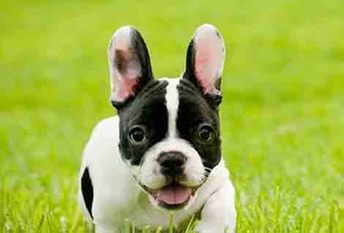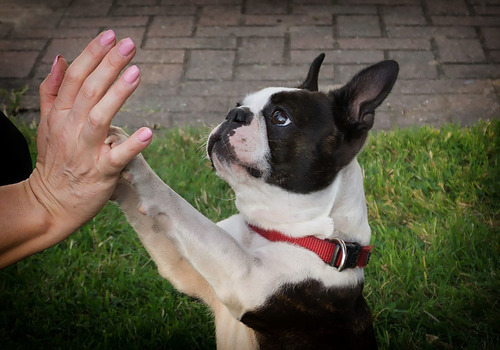The Boston Terrier has a short, smooth coat that is easy to groom and doesn’t shed heavily. Brush him weekly with a rubber hound mitt to remove dead hair and keep the skin healthy.
The debonair Boston doesn’t have a doggie odor and he shouldn’t need a bath more often than every few months. The rest is basic care. Trim the toenails every few weeks. Long nails can get caught on things and tear off. That’s really painful, and it will bleed a lot. Brush the teeth frequently for gooddental health.
The Boston’s need forexercisevaries from individual to individual. For some, a brisk walk once or twice a day will be enough. Others will need more time to run and play every day and let off steam.
Simply letting a Boston out into the backyard doesn’t count as exercise—he’ll probably just sit at the door waiting to be let back in. Left alone for long periods of time, a Boston will tend to become frustrated and develop undesirable behaviors.
Throw him a ball or a toy, however, and he’ll be more than happy to play with you. Participation in canine sports such asagility,obedience, flyball, andreallyis an enjoyable way to channel the breed’s energy.
Boston Terriers are smaller and slimmer than Bulldogs and obviously require a proportionately smaller diet. They can feed on the foods many dogs enjoy such as meat and vegetables. Pet owners should always stay away from processed foods as well as certain foods like chocolate when feeding dogs.
Boston Terriers are susceptible to a number of problems like cataracts, cherry eye, and deafness. Heart murmur is another problem to watch for in Boston Terriers, so be sure that you give your dog regular checkups at your local veterinarian.
Like other “short-snouted” breeds like Shih Tzu and Pugs, Boston Terriers can be susceptible to problems caused by its head and face shape. Less serious problems could include reverse sneeze.
As Boston Terriers are not particularly sporty dogs, they might not be as responsive to intensive training as a German Shepherd might be. But Boston Terriers are perfectly capable of being trained as part of a healthy, balanced life within the confines of a family and can certainly stand to be around strangers, which makes them good dogs for apartments and other city dwellings.











